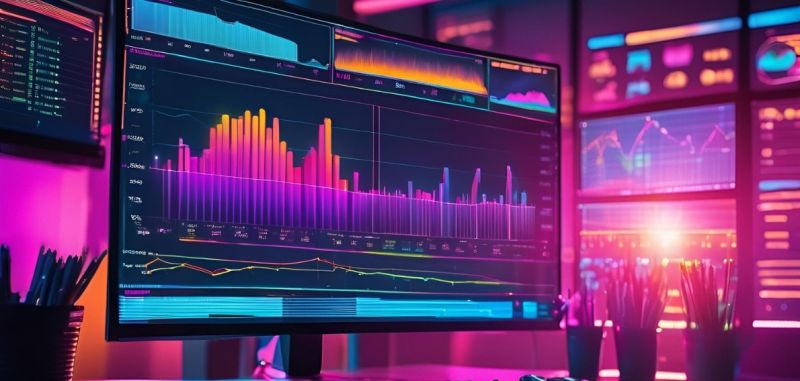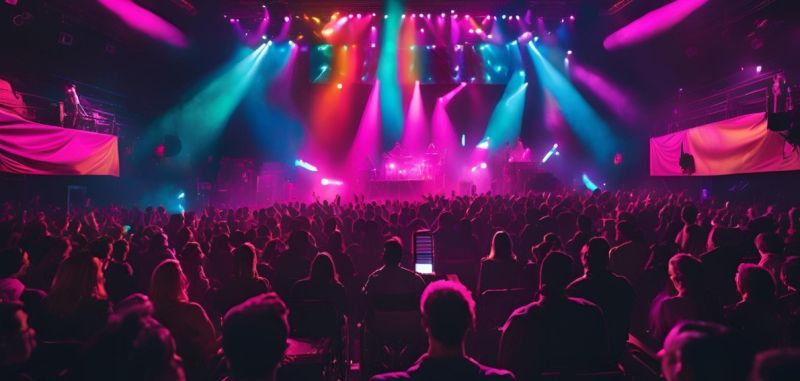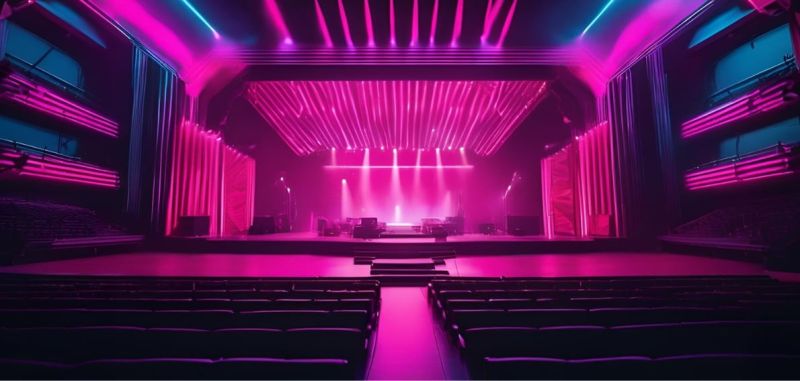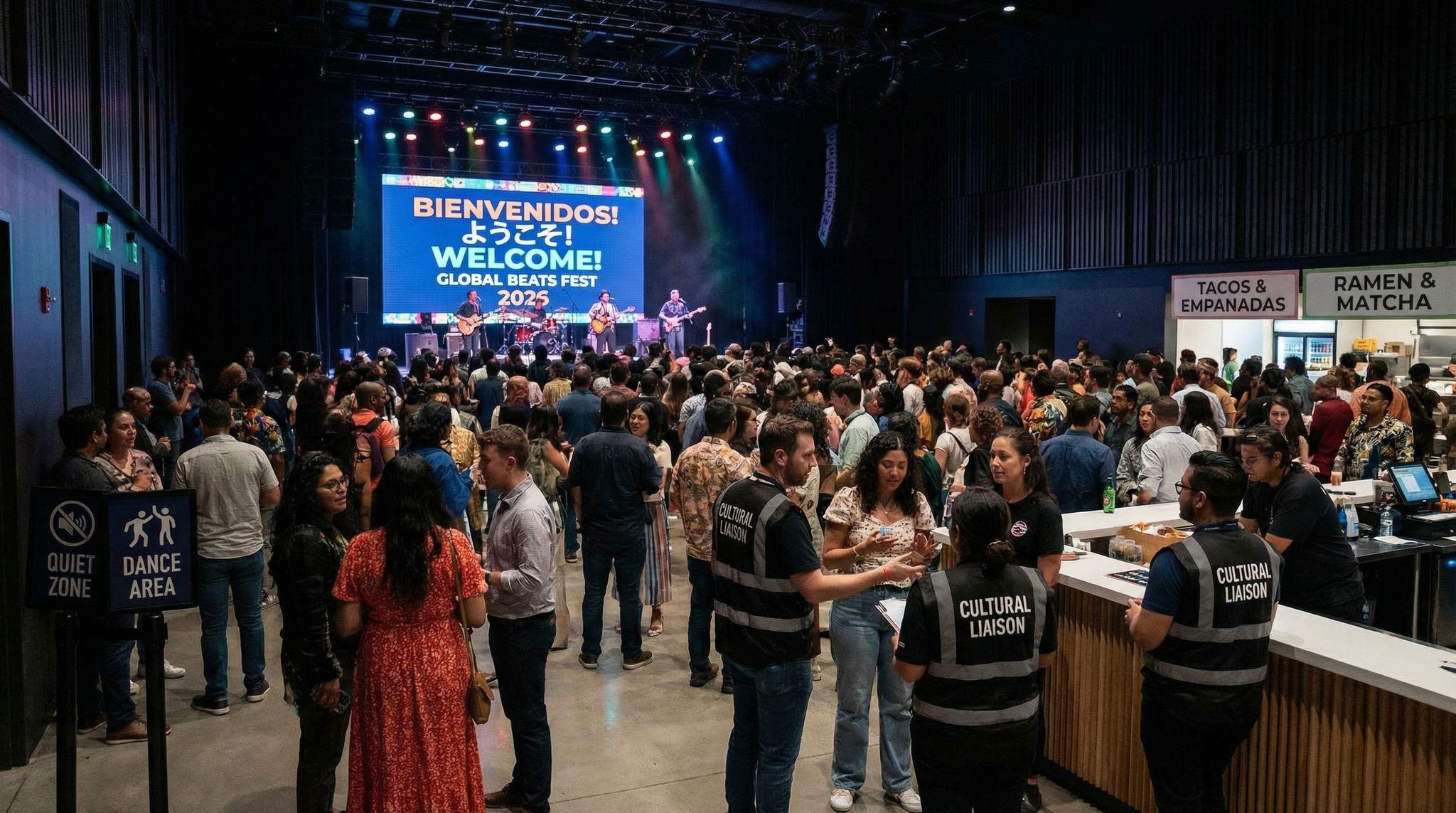Concerts are more than just an opportunity to experience live music—they are intricate events that require careful planning, coordination, and management. Managing large-scale events at concert venues presents unique challenges that can impact everything from crowd control to operational efficiency and overall guest experience. To maximize the efficiency of concert venues, event organizers must adopt best practices in areas such as logistics, staff coordination, technology integration, and crowd management. This article explores some of the best practices that concert venues can implement to ensure large-scale events run smoothly and successfully.
1. Understanding Venue Management

Venue management is the art and science of overseeing and coordinating the daily operations of a venue, ensuring that every event runs smoothly and guests leave with a positive experience. Effective venue management ensures that all aspects of an event, from planning to execution, are meticulously handled.
Venue managers play a pivotal role in this process, managing the venue’s staff, finances, and facilities, while also coordinating with event planners, vendors, and other stakeholders. Their expertise in event management is crucial for the seamless operation of concerts, conventions, and other large-scale events.
2. Key Tasks in Venue Management

Venue managers wear many hats, juggling a variety of tasks to ensure the success of each event. Key responsibilities include:
Event Coordination: Collaborating with event planners to ensure that every detail of the event is executed according to plan. This involves scheduling, logistics, and troubleshooting any issues that arise.
Staff Management: Supervising and training venue staff to provide excellent customer service. This includes assigning roles, conducting training sessions, and ensuring that staff are well-prepared for their duties.
Ready to Sell Tickets?
Create professional event pages with built-in payment processing, marketing tools, and real-time analytics.
Financial Management: Overseeing the venue’s finances, including budgeting, forecasting, and financial reporting. Effective financial management helps in maintaining profitability and ensuring that resources are allocated efficiently.
Marketing: Promoting the venue and its events to attract new customers and increase revenue. This involves creating marketing campaigns, managing social media, and engaging with the community.
Customer Service: Ensuring that guests have a positive experience at the venue. This includes addressing guest inquiries, resolving complaints, and enhancing the overall guest experience.
3. Streamline Event Planning and Logistics for Event Planners

Efficient planning is the cornerstone of any large-scale event venue management. The earlier and more effectively an event is planned, the better the chances of its success. Here are some key logistics strategies:
Early Coordination with Artists and Vendors: Begin discussions with artists, production teams, food vendors, security personnel, and suppliers as early as possible. This ensures that all parties are aligned on timelines, space requirements, and technical specifications.
Detailed Event Timelines: A comprehensive event timeline should be established, covering everything from artist arrival times to sound checks and stage setups. This provides a roadmap that ensures every team knows their responsibilities and when to execute them.
Grow Your Events
Leverage referral marketing, social sharing incentives, and audience insights to sell more tickets.
Equipment and Infrastructure Management: Ensure that the venue has enough equipment, sound systems, lighting rigs, and seating arrangements to handle the scale of the concert. Regularly inspect and maintain equipment to prevent breakdowns.
4. Leverage Technology for Seamless Operations

The right technology can significantly enhance the efficiency of concert venue management. Here’s how technology can make a difference:
Ticketing and Entry Management: Advanced ticketing systems that allow for digital tickets and QR code scanning at entry points can drastically reduce wait times. Implementing mobile ticketing apps can further streamline the process by providing attendees with instant access to their tickets. Ticket scanning apps like Ticket Fairy’s Entry Fairy is an intelligent tool of choice to manage at-the-gate scanning at large scale venues.
Real-Time Data and Analytics: Use analytics tools to track key metrics such as attendance numbers, concessions sales, and audience demographics in real-time. This data can provide valuable insights for making quick decisions and optimizing operations throughout the event.
Crowd Management Tools: Crowd control systems that include monitoring technologies (e.g., CCTV cameras and crowd density sensors) help to ensure safe and orderly movement of attendees. Real-time monitoring allows staff to address potential issues before they escalate.
Event Apps and Interactive Features: Offering a mobile app for the event can provide attendees with up-to-date information on schedules, food options, and venue maps. Additionally, interactive features like live polling or artist Q&As can boost engagement and improve the guest experience.
Administrative Tasks: Handling bookings, payments, and managing contracts to ensure smooth operation of events and venues.
Also Read: RFID Technology For Event Ticketing In 2025: The Complete Guide
5. Optimize Venue Layout and Design for Venue Management

The physical layout and design of an event space play a significant role in managing large crowds effectively. Factors to consider include:
Clear Signage and Wayfinding: Ensure that signs are prominently displayed throughout the venue to guide attendees to important locations such as restrooms, exits, food vendors, and emergency zones. Effective signage can reduce confusion and prevent bottlenecks during high-traffic periods.
Efficient Entrance and Exit Points: Designate multiple entry and exit points to avoid congestion at any single location. This is particularly important for events with large crowds, as it helps to facilitate quick and safe evacuations if needed.
Seating and Viewing Areas: For seated events, ensure that seats are arranged to provide optimal views of the stage while maintaining comfortable spacing. General admission areas should have clearly defined zones to prevent overcrowding.
Accessibility Features: Incorporate accessible pathways, seating, and services to ensure the event is inclusive for all attendees, including those with disabilities.
Also Read: Music Event Floor Plan Guide: Creating the Perfect Layout
6. Staff Training and Communication

Effective communication and well-trained staff are essential to handling large crowds and maintaining a smooth flow of operations. Here’s how concert venues can maximize staff efficiency:
Staff Training Programs: Provide staff with comprehensive training on customer service, emergency protocols, crowd management, and the use of technology. Ensuring that employees are well-versed in their duties will reduce errors and improve efficiency during the event.
Supervise In-House Staff: Venue managers are responsible for training and supervising in-house staff while strategically planning teams for events. This includes making staffing decisions such as hiring, firing, and payroll management.
Clear Communication Channels: Establish open communication channels between event staff, security personnel, and vendors. Radios or communication apps can allow team members to stay in contact and respond to any issues as they arise.
Role Assignment and Delegation: Assign specific roles and responsibilities to each staff member. For instance, some staff can focus on guest assistance, while others handle crowd control or operational logistics. Clear role assignments help minimize confusion and ensure that tasks are completed in a timely manner.
Also Read: Onground Music Event Management Guide: Ensuring Your Event Runs Smoothly
7. Crowd Management and Safety Protocols

Crowd safety is paramount during large-scale events, especially in music venues. Effective crowd management strategies can prevent accidents, reduce risk, and ensure that attendees enjoy a safe experience.
Advance Crowd Planning: Plan for crowd flow from entrance to exit. Use barriers and designated walkways to guide attendees and prevent overcrowding in specific areas. Consider having designated zones for high-capacity areas like the stage, bathrooms, and food courts.
Security Checks and Screening: Implement rigorous security checks at all points of entry. Bag checks, metal detectors, and surveillance are essential in maintaining safety during large-scale events.
Trained Security Personnel: Ensure that security personnel are trained in crowd control techniques and equipped to manage emergencies. Additionally, have medical staff on standby in case of accidents or health-related issues.
Clear Emergency Protocols: Establish emergency evacuation plans and communicate them clearly to both staff and attendees. In case of an emergency, having a well-rehearsed evacuation plan will minimize panic and confusion.
Also Read: Attendee Management for Concert Venues in 2025: Navigating the Future of Live Events
8. Managing Multiple Venues

Managing multiple venues presents a unique set of challenges, requiring venue managers to juggle various events, staff, and facilities simultaneously. To navigate these complexities effectively, venue managers should:
- Develop a Centralized System: Implement a centralized system for managing events, staff, and finances across all venues. This helps in maintaining consistency and streamlining operations.
- Establish Clear Communication Channels: Ensure that there are robust communication channels between staff and stakeholders at each venue. This facilitates quick decision-making and efficient problem-solving.
- Implement Efficient Processes: Develop and standardize processes for logistics and operations to ensure that each venue operates smoothly. This includes scheduling, inventory management, and event setup.
- Monitor and Analyze Data: Regularly monitor and analyze data from each venue to identify areas for improvement. This data-driven approach helps in optimizing performance and enhancing guest experience.
- Develop a Growth Strategy: Create a strategic plan for expanding and growing the business. This includes exploring new markets, investing in technology, and enhancing service offerings.
Also Read: 7 Tips for Seamless Event Entry Management at Your Events
9. Industry Trends and Insights

The venue management industry is dynamic, with new trends and technologies continually shaping the landscape. Some current trends and insights include:
- Technology Integration: The use of technology to enhance the guest experience is on the rise. Mobile apps, virtual reality, and other digital tools are becoming essential for engaging attendees and streamlining operations.
- Sustainability: There is a growing emphasis on sustainability and environmental responsibility. Venues are increasingly adopting eco-friendly practices to reduce their environmental footprint and appeal to environmentally conscious guests.
- Experiential Events: The demand for unique and experiential events, such as festivals and activations, is increasing. Venues are adapting by offering more immersive and interactive experiences.
- Adaptability and Flexibility: Venue managers need to be adaptable and flexible to respond to changing market conditions. This includes being prepared for unexpected challenges and seizing new opportunities.
- Data Analysis: The importance of data analysis and metrics in measuring the success of events and venues cannot be overstated. Data-driven insights help in making informed decisions and improving overall performance.
10. Sustainability in Venue Management

Sustainability is becoming a cornerstone of effective venue management, as venues strive to reduce their environmental impact and enhance their social responsibility. Here are some ways venues can prioritize sustainability:
- Energy Efficiency: Implement energy-efficient lighting and HVAC systems to reduce energy consumption and lower operational costs.
- Waste Reduction: Focus on reducing waste and increasing recycling efforts. This includes using biodegradable materials and promoting waste segregation.
- Sustainable Materials: Use sustainable materials and supplies for event setups and operations. This helps in minimizing the environmental impact.
- Sustainable Transportation: Promote sustainable transportation options, such as carpooling and public transportation, to reduce the carbon footprint of events.
- Sustainability Policy: Develop a comprehensive sustainability policy and regularly report on progress. This demonstrates a commitment to environmental responsibility and can enhance the venue’s reputation.
By integrating these practices, venues can not only contribute to a healthier planet but also appeal to a growing segment of eco-conscious consumers.
11. Enhance the Guest Experience

Finally, the guest experience is a critical component of concert venue efficiency. A well-run event not only relies on logistics but also on the enjoyment and satisfaction of attendees.
- Efficient Food and Beverage Service: Offer a wide variety of food and beverage options that are easily accessible and reasonably priced. Digital payment options and mobile ordering systems can reduce wait times and enhance the overall experience.
- VIP and Hospitality Services: For higher-tier ticket holders, consider offering exclusive services such as VIP lounges, dedicated entrances, or backstage access. These services not only enhance the experience but also generate additional revenue for the venue.
- Sustainability Initiatives: Concertgoers increasingly appreciate venues that prioritize sustainability. Implement eco-friendly practices such as waste reduction, water refill stations, and the use of biodegradable materials to reduce the environmental footprint of the event.
Conclusion
Managing large-scale events in concert venues requires a combination of meticulous planning, innovative technology, effective staff coordination, and a focus on safety and guest experience. By incorporating best practices for logistics, crowd control, and staff communication, concert venues can enhance operational efficiency, reduce costs, and deliver exceptional experiences for attendees. With the right strategies in place, venues can maximize their potential, handle the complexities of large events, and ensure successful outcomes for all parties involved.
You May Also Like:
Ticketing Platforms for Anti Scalping: A Comprehensive Guide for Live Event Organizers
SEO Tips for Event Organizers: The Ultimate Guide to Boost Your Event’s Online Visibility in 2025
Music Event Technology Trends 2025: Innovations Shaping the Future of Live Music Experiences
Frequently Asked Questions
What are the key responsibilities of venue management?
Venue management involves overseeing daily operations, finances, and staff to ensure events run smoothly. Key responsibilities include coordinating with event planners on logistics, supervising and training staff, managing budgets, and executing marketing campaigns. Managers also handle customer service to ensure guests have a positive experience during large-scale events.
How can technology improve efficiency in concert venues?
Technology enhances venue efficiency through digital ticketing systems and QR code scanning that reduce entry wait times. Real-time analytics tools track attendance and sales for quick decision-making, while crowd management sensors monitor safety. Additionally, mobile apps provide attendees with schedules and maps, streamlining communication and engagement.
What are the best practices for crowd management at music events?
Effective crowd management requires advance planning of crowd flow using barriers and designated walkways to prevent overcrowding. Venues must implement rigorous security checks like metal detectors at entry points and employ trained personnel for crowd control. Establishing clear emergency evacuation protocols is essential for maintaining safety during large concerts.
How can venues optimize their layout for large crowds?
Optimizing venue layout involves placing clear signage and wayfinding to guide attendees to exits and amenities, reducing bottlenecks. Designing multiple entry and exit points helps avoid congestion, while seating arrangements should provide optimal views without overcrowding. Accessibility features must also be incorporated to ensure the event is inclusive for all guests.
What strategies help in managing multiple venue locations?
Managing multiple venues requires a centralized system to handle events, staff, and finances across all locations consistently. Establishing robust communication channels and standardizing operational processes for logistics ensures smooth execution. Managers should also regularly monitor data from each venue to identify improvements and develop a strategic plan for business growth.
How can concert venues implement sustainability practices?
Venues can improve sustainability by installing energy-efficient lighting and HVAC systems to reduce power consumption. Waste reduction efforts should include recycling programs and the use of biodegradable materials for operations. Promoting sustainable transportation options and developing a comprehensive environmental policy also help reduce the venue’s carbon footprint.




